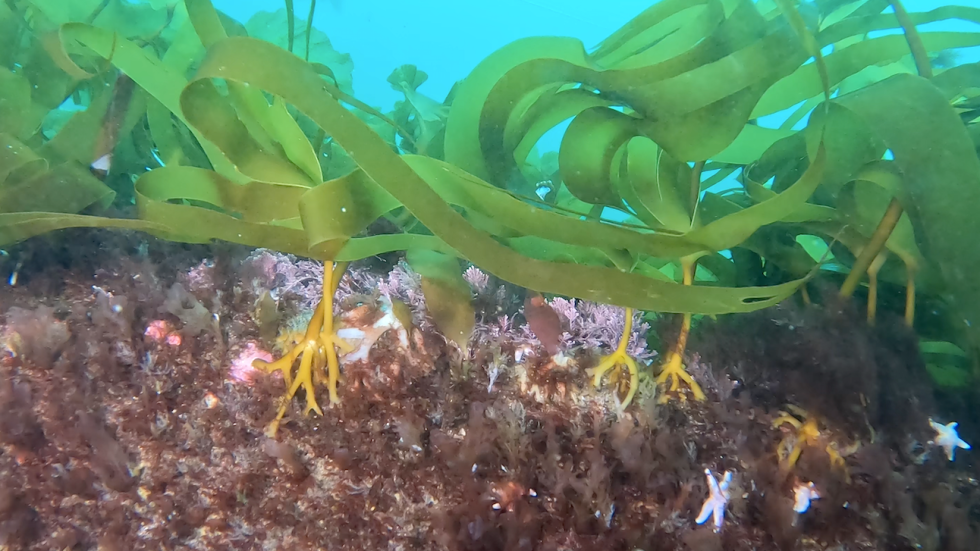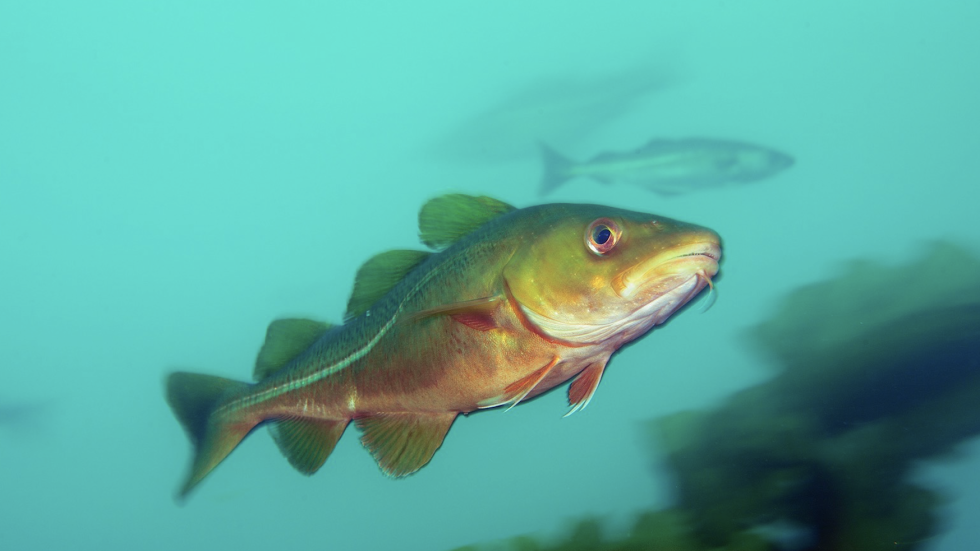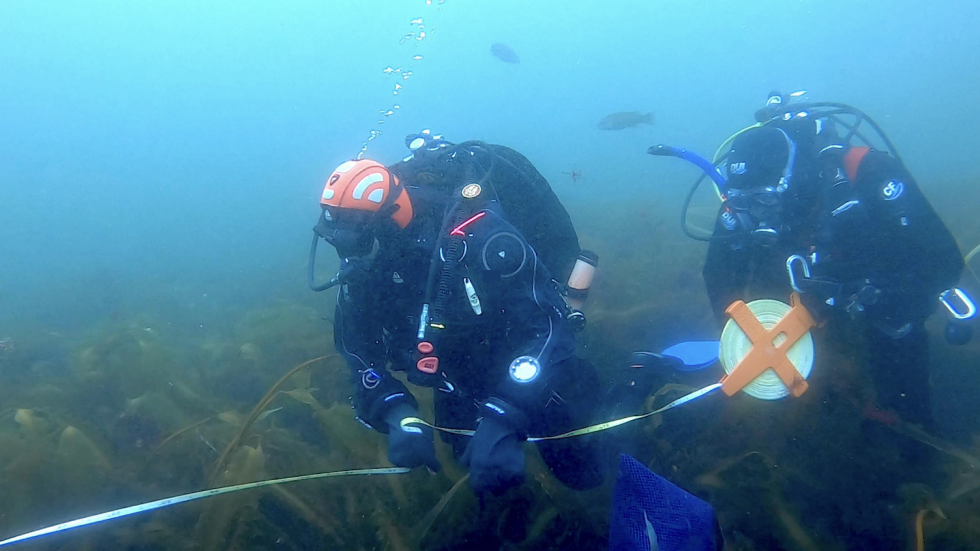Research Spotlight: Professor Jon Witman
Marine ecologist Jon Witman is driven to pursue permanent protection of Cashes Ledge, a unique ecosystem and natural laboratory in the heart of the Gulf of Maine.
Rising temperatures and climate pressures are posing problems for Cashes Ledge, an undersea mountain ridge and kelp garden at the center of the Gulf of Maine. Since 1978, Witman has seen concerning changes in the region’s fish and kelp compositions. “The Gulf of Maine is warming faster than 99% of the world’s oceans,” warns Witman, an Institute at Brown University for Environment and Society (IBES) fellow and professor in Ecology, Evolution, and Organismal Biology, who believes that extensive conservation efforts are essential.
Research reveals significant underwater changes
During the summer of 2023, Witman climbed aboard the R/V Connecticut with a team of three scientists from the University of Maine and the University of Florida, as well as four photojournalists from National Geographic and the Public Broadcasting Service, to document recent changes in the marine landscape.
“Our goal was to see how the entire ecosystem on Cashes Ledge, focused around the kelp forest — which doesn’t thrive when the ocean’s temperature rises — has changed since 2016, the last time we conducted any surveys there,” says Witman, the chief scientist on the two-week expedition.
Through scuba dives and observing footage from stationary video cameras, the team learned that, while the kelp forest is still dense, its species composition is changing in a way that Witman calls “significant.” Tall, canopy-forming sugar kelp, for example, is being edged out by shorter finger kelp, and invasive red algae is increasingly taking over the sea floor beneath the kelp. These architectural changes in the habitat, Witman noted, could have serious impacts on the aquatic forest community.
“ While the fish are still abundant there, the composition is shifting. ”
Surveys by Robert Lamb PhD’19, a research assistant professor at the University of Florida, and Doug Rasher, a senior research scientist at Bigelow Laboratory for Ocean Science, indicated that fish, too, are impacted by these ecological changes; cod continue to decline and crabs and urchins are very rare, due in part to high fish predation and overfishing. “While the fish are still abundant there, the composition is shifting,” says Witman.
Rasher and University of Maine PhD student Shane Farrell sampled genetic material shed by organisms in the water column. “It’s magical,” says Witman. “The fish and cetaceans that have passed through the area excrete waste and shed scales, which contain some DNA. They then filter large amounts of water, extract the DNA from the waste and scales, and identify it to a specific species, which is remarkable.”

S. digitata, or finger kelp, is edging out tall, canopy-forming sugar kelp in Cashes Ledge. Photo courtesy of Jon Witman.

Cod populations are also declining. Photo by Brian Skerry.

Two divers wind up transect tape after conducting underwater surveys. Photo courtesy of Jon Witman.
Diverse actions needed to preserve Cashes Ledge
While this two-week project revealed meaningful data, Witman has several long-term steps in mind as he works to achieve permanent conservation of Cashes Ledge: investigating kelp’s significance in feeding the entire food web and conducting more in-depth studies of the impact of heat waves on the kelp forests.
Along the way, Witman is also eager to train and mentor the next generation of scientists — including Rasher, Lamb, and Farrell — to conduct research in offshore locations. “They are totally committed to continuing research there; I’m a mentor as well as a researcher,” says Witman, who wants to pass on his extensive knowledge of the ecosystem.
Illuminating the Gulf’s grandeur is a team effort
In addition to his work in the field and the classroom, Witman is advocating for public outreach and raising awareness of Cashes Ledge’s importance. “It’s such a spectacular environment out there,” he says “Many people think the Gulf of Maine is boring with drab colors, but it is brilliant with red sponges … and beautiful golden kelp. It’s an incredibly vibrant ecosystem.”
Crediting Rasher, Lamb, Farrell, longtime colleague Elizabeth Kintzing, and chief photojournalist Brian Skerry and as valuable collaborators in this research initiative, Witman remains focused on documenting the condition of Cashes Ledge. “We need to get there more frequently,” he said. “We need to track it more closely as a natural laboratory for climate change.”